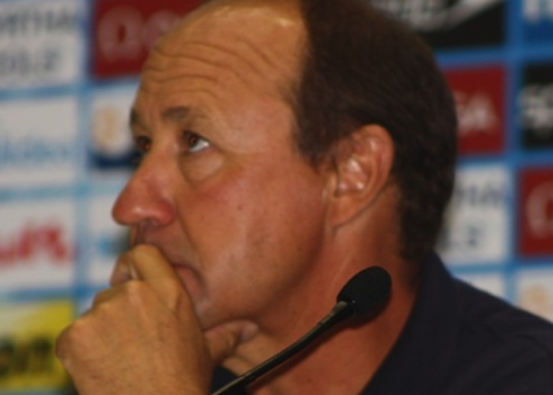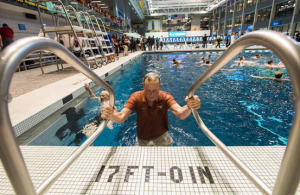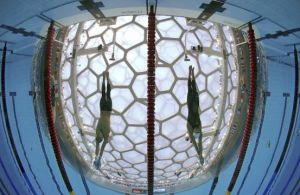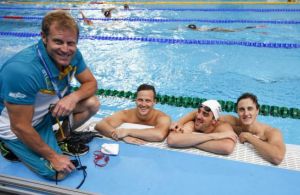- Commissioner’s statement on Ventura, Marte
- Ronnie O’Sullivan: Masters champion ‘felt so vulnerable’ in final
- Arron Fletcher Wins 2017 WSOP International Circuit Marrakech Main Event ($140,224)
- Smith challenges Warner to go big in India
- Moncada No. 1 on MLB Pipeline’s Top 10 2B Prospects list
- Braves land 2 on MLB Pipeline’s Top 10 2B Prospects list
- Kingery makes MLB Pipeline’s Top 10 2B Prospects list
- New Zealand wrap up 2-0 after Bangladesh implosion
- Mathews, Pradeep, Gunathilaka to return to Sri Lanka
- Elliott hopes for rain for Poli
Dave Salo: ‘Supplements War Is Lost & Why It’s Better To Have Efimova Back In The USA’
- Updated: May 27, 2016

Dave Salo, the head coach at Trojan who has felt the hard knock of charges falling foul of anti-doping rules, believes that the battle to have swimmers train without reliance on supplementation is being lost.
In response to questions from SwimVortex, Salo takes an emphatic stance against all things from legal supplementation to banned substances. That, he says, has been his position for the 37 years in which he has coached, despite having given some key names a second chance after they fell foul of anti-doping rules.
With more than a sense of sadness at a time when one of those he has coached in recent years, Yuliya Efimova, is awaiting the second FINA Doping Panel hearing of her career next Monday, Salo says:
“I have lost that battle to coaches who believe that without supplementation (without doubt legal) an athlete cannot compete – or the chatter that occurs amongst athletes around the warm down pool that sounds something like this – ‘Great swim – so what are you taking?’.”
Salo highlights a problematic culture in which swimmers, coaches and others look to props beyond best lifestyle practices in and out of the water in pursuit of excellence in the pool.
As the then USA head coach Mark Schubert once told this author:
“If you are constantly looking for that external miracle that’s gonna take your performance to new heights, there’ll be those waiting for you at the next door to lead you to darker places.”
Some of Salo’s swimmers have known darker places that led them to have to defend themselves after testing positive for banned substances. Jessica Hardy, Ousamma Mellouli and of late Efimova are among Trojan charges who fell foul of anti-doping rules. No two cases are the same, culpability judged on the basis of the circumstances of each incident and the relative merits of arguments by sporting defence and prosecution.
All those swimmers were able to return to Salo’s program after they had served time in the sin bin. That has led to accusations that stretch from “tolerance too far” to “complicit”.
Image courtesy of FreeDigitalPhotos.net
The first of those charges is opinion, the second is one which Salo categorically rejects when he tells SwimVortex:
“Craig, I have been coaching for 37 years. In that time I have never encouraged, suggested or implied, let alone supplied for supplementation any substance over the counter, on top of the counter or under the counter. I steadfastly believe, and constantly tell my athletes, that with good hard work, good healthy diet and hydration they can be successful.”
Music to the ears of those wedded to clean sport. Salo says that mantra has never altered, swimmers come, swimmers go:
“You will find no athlete that I have ever coached who will tell you I have positioned myself contrary to that. I feel certain that most, if not all, national team coaches in this country, as well as internationally have a contrarian view on supplementation. I have never endorsed a supplemental product; I have never provided a supplemental product to my athletes. Yulia’s testimony in her original case, in fact, confirms my position.”
Indeed it does. Efimova was entirely to blame when she tested positive for the steroid DHEA in October 2013: in short, she went to a local store, listened to what the assistant had to say, bought the product and then took it, never once reading the label that listed the banned substance.
Failing to read a label is no excuse but Efimova was let off lightly with a 16-month suspension, just over 12 months of that actually “served” because she trained and raced on while her case was pending. The penalty period, imposed by the FINA Doping Panel, ended just in time for Efimova to make a return to racing (and straight to the helm of the world rankings she shot, having trained on during her suspension period), qualify for Russian nationals and, at those, a home World Championships on her way to the 100m breaststroke crown.
The system itself is a contributory …
continue reading in source www.swimvortex.com



